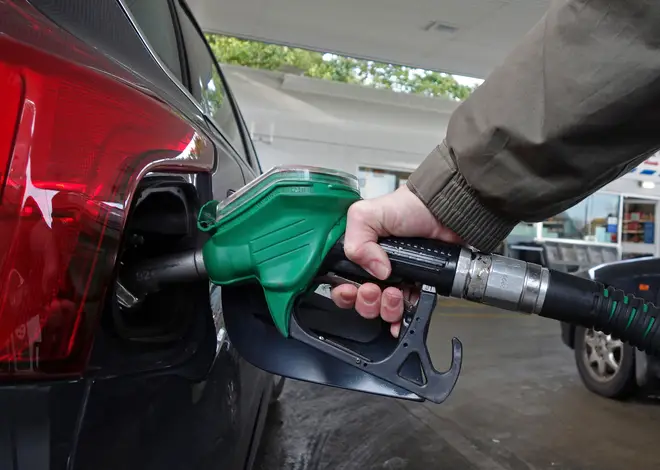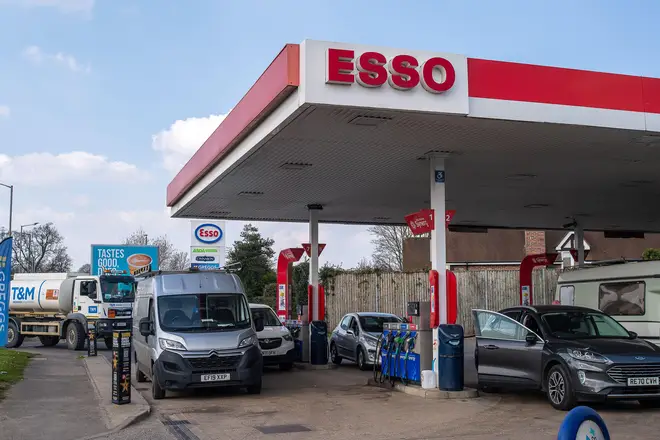
Iain Dale 10am - 1pm
24 April 2024, 09:04

The average price of a litre of petrol has reached 150p for the first time since November, in a blow for motorists.
Typical prices reached 150.1p per litre on Monday, according to an analysis of official data.
A litre of diesel is also at its highest price since November 2023, at 158.3p.
An increase in the cost of oil and a weakening of the pound versus the US dollar have contributed to rising fuel prices in recent weeks.
Oil prices have since come down, leading to hopes that the spike in petrol costs could be short-lived.
AA spokesperson Luke Bodset said: "Inflation has been heading downwards at quite some speed but petrol’s rebound to 150p a litre leaves a big boulder in the road.
Read more: UK's cheapest and most expensive petrol stations revealed - full list

"Government data shows that for the fourth week petrol prices have been higher than at the same time a year ago. This last happened in February 2023.
"Five days of falling wholesale costs, with the value of oil coming off the boil, offers hope that pump prices may not get much worse in the short-term.
"However, road fuel priced above 150p a litre grabs the attention of drivers and will lead some to re-tighten their belts on other spending."
The figures come from an analysis of Competition and Markets Authority data by website Fuel Prices Online.

Government Minister explains new 'pumpwatch' petrol pricing plans
According to AA, of a sample of nearly 3,000 petrol stations, 28.1% were charging at least 150p per litre for petrol on Monday, compared with 23.8% a week earlier.
RAC spokesman Simon Williams said: “Drivers are now really starting to feel pain at the pumps, with a litre of unleaded already up by more than 3p a litre since the start of the month and 9p since the start of the year – adding £1.65 and £5 to the cost of filling a typical family car.
"There are two reasons for this – the rise in the cost of oil and a weakening pound, which makes it more expensive when retailers come to buy new fuel supply.

AA President: 'Without a doubt, petrol prices are too high'
"The big question is what happens now. While the Middle East tensions saw oil hit the $90 a barrel mark, prices have since eased a little which is starting to translate into lower wholesale prices for UK retailers.
"In theory at least, this should mean prices at the pumps don’t rise much further, if at all – but so much depends on the margin these same retailers decide to take.
"Right now, it’s drivers of diesel vehicles who have the right to feel aggrieved as the average margin on a litre of diesel is 14p which is well up on the long-term average of 8p. Higher margins always mean higher prices for drivers.”